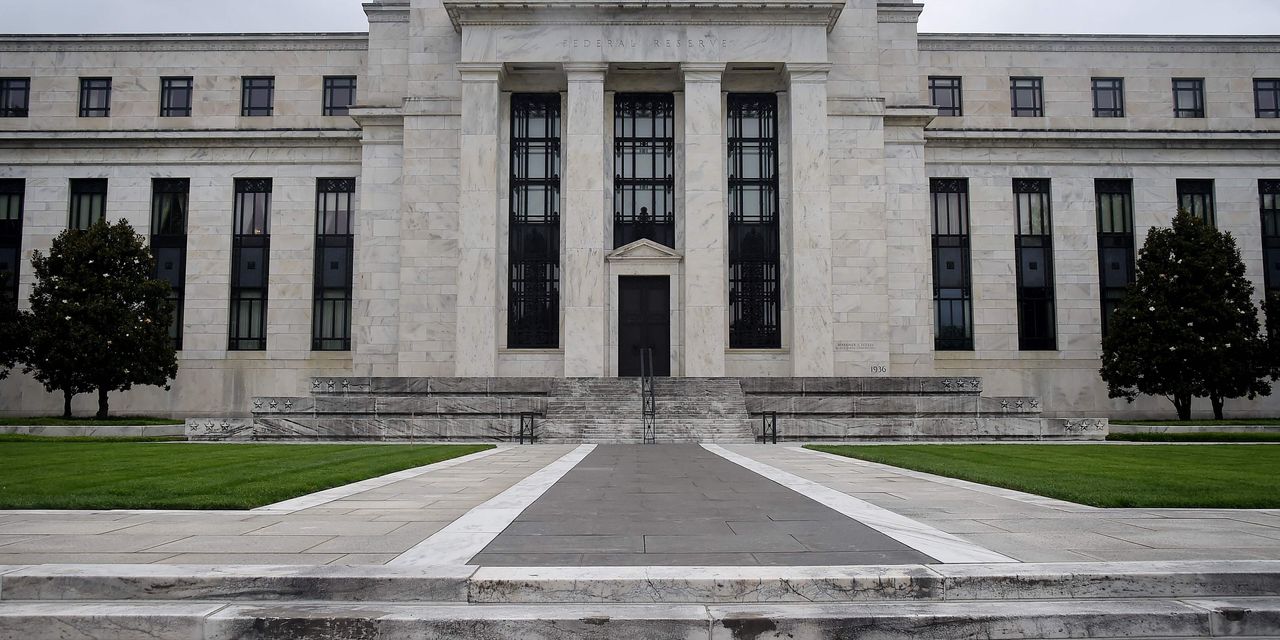
Say it, if you mean it.
Brad Tank, chief investment officer of fixed income at Neuberger Berman, thinks the Federal Reserve will have a hard time telling investors the party is over, even if it never plans to backstop the U.S. $10.7 trillion corporate bond market again.
“There now appear to be two types of assets in financial markets: those eligible for major central-bank purchases, and those not,” Tank wrote in a market note for the $402 billion asset manager.
He reckons that U.S. corporate bonds, by a number of metrics, still sit in the “eligible” camp, even though the Fed in early June said it would start selling off its nearly $14 billion of corporate debt holdings accumulated during the pandemic.
Read: Is the Fed ‘tightening cycle’ already happening?
Most of the central bank’s recent asset purchases have been in U.S. Treasury debt TMUBMUSD10Y, 1.481% and agency mortgage bonds FNMA, +0.88% FMCC, +0.73%, as its balance sheet has grown to a record $8.1 trillion to help steady the economy through the pandemic recovery.
A year ago, Fed Chairman Jerome Powell said the Fed wasn’t an “elephant” running through the corporate-debt markets, while insisting it was lending its support to credit markets to limit potential damage to companies facing a cash crunch during the crisis.
But Tank still see doubts from investors about whether the Fed plans to quit corporate debt forever, including with the “collapse” in volatility in the sector over the past 15 months, as the central bank embarked on buying corporate debt for the first time ever.
Spreads last week slumped to a new post-2008 low of 87 basis points on the ICE BofA U.S. Corporate Index, above the risk-free Treasury rate, as stocks sold off, the dollar skyrocketed and Treasury yields tumbled.
The potential problem is that when “confidence grows that a price-insensitive buyer is ready to support the investment-grade market in the event of a severe selloff, a liquidity crunch or a spike in volatility, we think that makes investors a little less price-sensitive and a little less concerned about downside risk, too,” Tank wrote.
What’s more, the longer that volatility stays at bay in an asset class, the more investors, including buyers using leverage, often end up boosting their allocation to a sector, he said. “Remember this is a feedback loop” where a larger base of buyers can translate to even less volatility, he added.
While corporate bonds have been mostly steady, gyrations in stocks have been picking up lately, including in the Dow Jones Industrial Average DJIA, +1.76%, which scored its best day since March on Monday on optimism about the economy, but last week booked its worst weekly decline since October.
The rout largely was attributed to Powell signaling that the full range of central-bank support may not be in the cards for as long as anticipated, with Fed officials penciling in two interest-rate hikes in 2023 and underscoring that discussions have begun on when to potentially scale back its bond-buying program.
Even so, as financial markets cope with the eventual tightening of extremely supportive monetary policy, not everyone thinks corporate bonds will remain immune to jitters.
“We keep pushing the view that nobody has seen this movie before,” wrote Hans Mikkelsen’s credit team at BofA Global research, in a client note Friday, about its forecast for a modest selloff in investment-grade corporate bonds over the next six months, sparked by stumbles with the economic reopening or potentially a quicker path to higher rates after the first rate hike.
“We look for spreads to widen to 125bp from the current level of 87bps, toward the wide range of the expected 2021 spread range of 90-113bps,” the BofA team wrote of U.S. investment-grade bonds.
Neuberger’s Tank thinks the feedback loop of low volatility and increased allocations would be tough to derail, but not impossible.
“It is difficult to see what can break this loop beyond an explicit statement by the Fed that it will no longer buy corporate bonds (which seems unlikely, given the disruption it might cause) or the central bank losing control over inflation,” he wrote.









